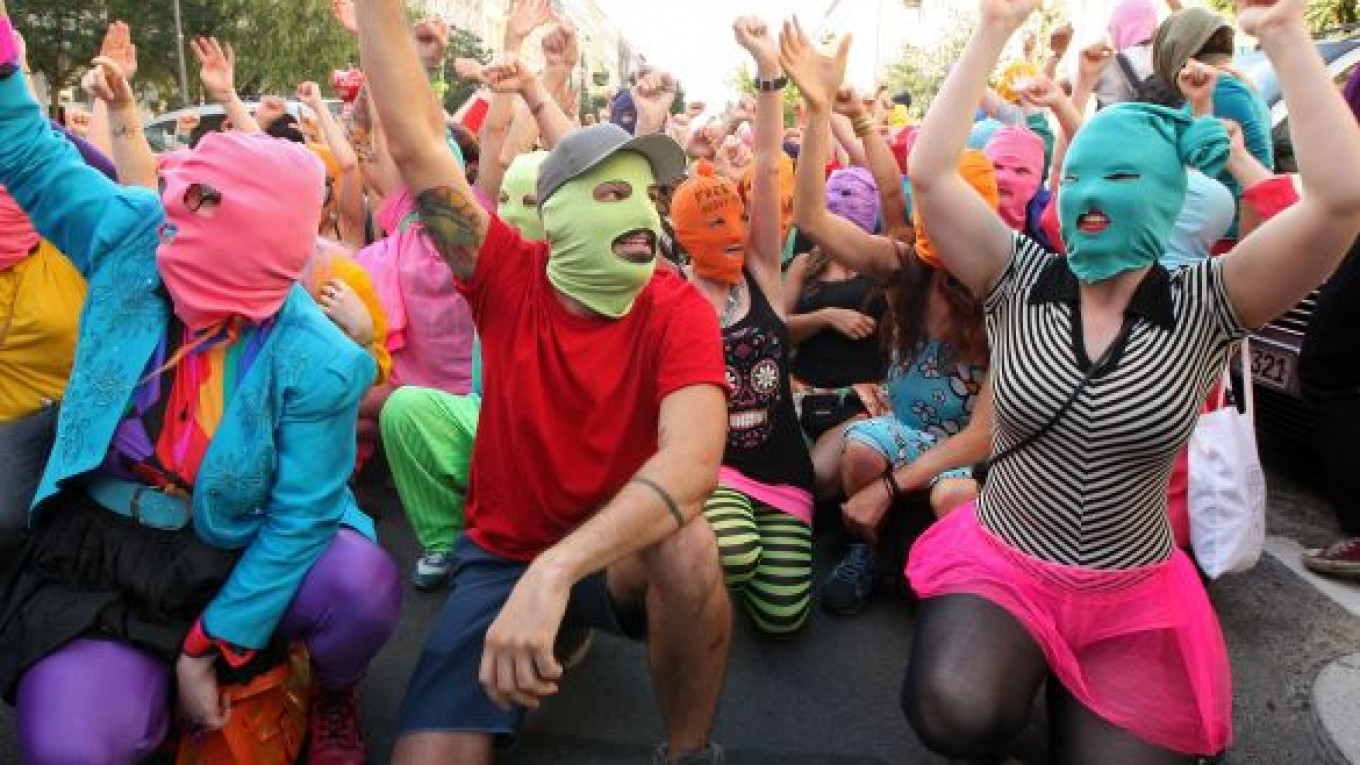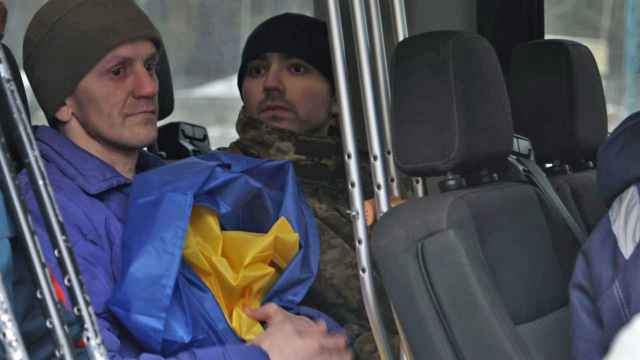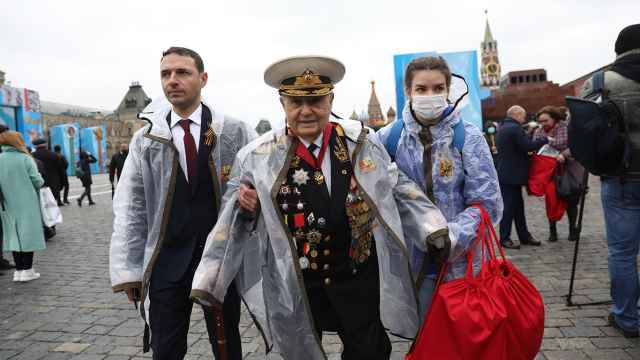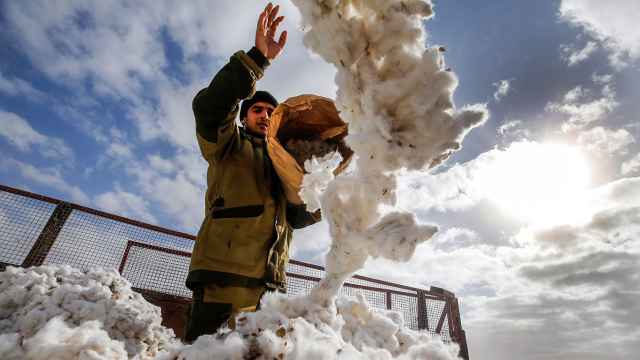Deputy Prime Minister Dmitry Rogozin an obscene message about Madonna after the U.S. pop singer urged authorities to free the Pussy Riot musicians, provoking a storm of controversy on social networking sites Thursday.
Meanwhile, jailed tycoon Mikhail Khodorkovsky congratulated one of the arrested punk band members on her birthday, and two events were staged in Berlin to support the jailed trio.
Rogozin, in a post on Twitter late Wednesday, said that "every former w. who has aged wants to give lectures about morals, especially during tours and gigs abroad." He used an abbreviated form of the Russian swearword for whore. He did not elaborate on why he had referred to Madonna, who wears sexually provocative clothing and has appeared nude in movies and books, with such language.
Rogozin's spokeswoman, Lidia Mikhailova, said by phone that there would be no further comment from Rogozin because, first, he was on vacation, and "second, he said all that could be said."
Rogozin's Twitter declaration was quickly reposted by bloggers on Twitter and Facebook, provoking angry comments about both the deputy prime minister and Madonna.
Some said Rogozin was right because Madonna "was once a whore," while others retorted that Rogozin himself was a "whore," apparently referring to his public evolution from an opposition-minded nationalist to a Putin loyalist.
"Better a former w. than a former patriot," Twitter user Andrei Kokarev wrote.
Madonna told Moscow concertgoers on Tuesday night that the Pussy Riot defendants "have done something courageous" and "have paid the price for their act" of denouncing President Vladimir Putin and Patriarch Kirill during a February performance in Moscow's Christ the Savior Cathedral. "I pray for their freedom," she said.
Madonna was to give a concert in St. Petersburg late Thursday.
The defendants have been under arrest since early March on charges of hooliganism motivated by religious hatred. The verdict is expected Aug. 17 at Moscow's Khamovnichesky District Court. Prosecutors have asked the court to sentence the women — Nadezhda Tolokonnikova, 22; Maria Alyokhina, 24; and Yekaterina Samutsevich, 30 — to three years, while the judge could hand down the maximum seven years allowed by law.
Khodorkovsky, in a posted on his website, offered birthday greetings to Samutsevich, who turned 30 on Thursday. "I would like to hope that your prison experience will end soon," Khodorkovsky said. "The crooks who are asserting themselves at your expense today will suffer defeat."
Khodorkovsky said that he knew from personal experience that Samutsevich was "having a tough time," but "the support of millions of people cheers up, gives strength and, in the end, helps a person to survive."
Reporters and supporters gathered Thursday afternoon outside Detention Center No. 6 on Ulitsa Shosseinaya, in the southeast of Moscow, to mark Samutsevich's birthday.
In Berlin, 121 lawmakers from the Bundestag passed a letter in support of Pussy Riot to the Russian ambassador, Vladimir Grinin, on Wednesday, Radio Liberty .
Also Wednesday, Peaches, a Canadian electro-pop performance artist, shot a video clip for a song she wrote in support of Pussy Riot in Berlin's Mauerpark. About 400 volunteers dressed in colorful clothes and wearing balaclavas — attire similar to what the Pussy Riot musicians wore in church — took part in crowd scenes.
A Message from The Moscow Times:
Dear readers,
We are facing unprecedented challenges. Russia's Prosecutor General's Office has designated The Moscow Times as an "undesirable" organization, criminalizing our work and putting our staff at risk of prosecution. This follows our earlier unjust labeling as a "foreign agent."
These actions are direct attempts to silence independent journalism in Russia. The authorities claim our work "discredits the decisions of the Russian leadership." We see things differently: we strive to provide accurate, unbiased reporting on Russia.
We, the journalists of The Moscow Times, refuse to be silenced. But to continue our work, we need your help.
Your support, no matter how small, makes a world of difference. If you can, please support us monthly starting from just $2. It's quick to set up, and every contribution makes a significant impact.
By supporting The Moscow Times, you're defending open, independent journalism in the face of repression. Thank you for standing with us.
Remind me later.






